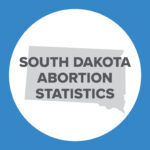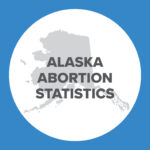Ireland High Court: Unborn Child Has Rights “Beyond the Right to Life Alone”

Earlier this month in Ireland, a High Court judge ruled that the unborn child possesses “significant” rights by common law, by statute, and under the Irish Constitution.
Mr. Justice Richard Humphreys went on to say that the unborn child enjoys rights “going well beyond the right to life alone” and that these rights “must be taken seriously” by the State.
This ruling has come as welcome news in Ireland, especially from those who work for the recognition of the right to life of the unborn. Niamh Uí Bhriain of the Life Institute in Dublin stated, “This is an important ruling which provides useful clarity at a time when the media and abortion campaigners are arguing that preborn children should be denied even the most fundamental right – the right to life,” She added, “Mr. Justice Humphreys has ruled that preborn children not only have a right to life, but that the State is obliged to ensure that all the rights accruing to every child are upheld for children before birth.”
Ireland is a fascinating country to study, especially in regard to its abortion policy. Unlike most European countries (which allow for elective abortion during the first few weeks of pregnancy) and the United States (where abortion is permitted until birth), the lives of unborn babies in Ireland are expressly protected under the Constitution. The 8th Amendment of the Irish Constitution, which was adopted in 1983, “acknowledges the right to life of the unborn and, with due regard to the equal right to life of the mother, guarantees in its laws to respect, and, as far as practicable, by its laws to defend and vindicate that right.”
This new ruling, which was made in a judicial review of a deportation application, is important for several reasons but particularly due to the fact that Mr. Justice Humphreys clarifies that “unborn” most definitely refers to an “unborn child” and that the rights of the unborn child are “actually effective” rather than merely prospective. This means that it is now the responsibility of the government to protect the rights the unborn has and not simply acknowledge the ones she will have in the future.

This ruling comes at a critical point in Irish history. While Ireland has long resisted attempts to force legalized abortion into the country – despite the efforts of the United Nations and European Union as well as international abortion activists including Amnesty International and the International Planned Parenthood Federation – the pro-abortion effort has increased tremendously in the past few years. The pro-abortion lobby and the media have pushed especially hard for the government to legislate for abortion in cases where the baby is prenatally diagnosed with a potentially life-limiting condition. As a result of this well-funded activism, Ireland sits on the precipice of an abortion referendum which could potentially open the country to abortion on demand without any limitations.
Mr. Justice Humphreys made clear in his ruling that the unborn are human children with significant and fundamental human rights, including, but not limited to, the right to life. Human rights are the duties and entitlements that are natural to us due only to the fact that we are human. They are not gifted to us by the State and they cannot be taken away by government decree, court order, or even a democratic vote. However, it remains the duty of the government to uphold and protect the human rights of all its people, both born and unborn.
The humanity of the unborn is not up for debate. That has been settled by common sense and decades of scientific discovery. It is due to their human nature that the unborn, as Mr. Justice Humphreys states, are guaranteed certain basic rights. This is true in Ireland, the United States, and every other country of the world. It is the responsibility of the government to uphold and protect these rights and it is the responsibility of the people to demand that they do so.
Nora Sullivan, MPA, is Research Director at the Life Institute in Dublin and an associate scholar of the Charlotte Lozier Institute.

























